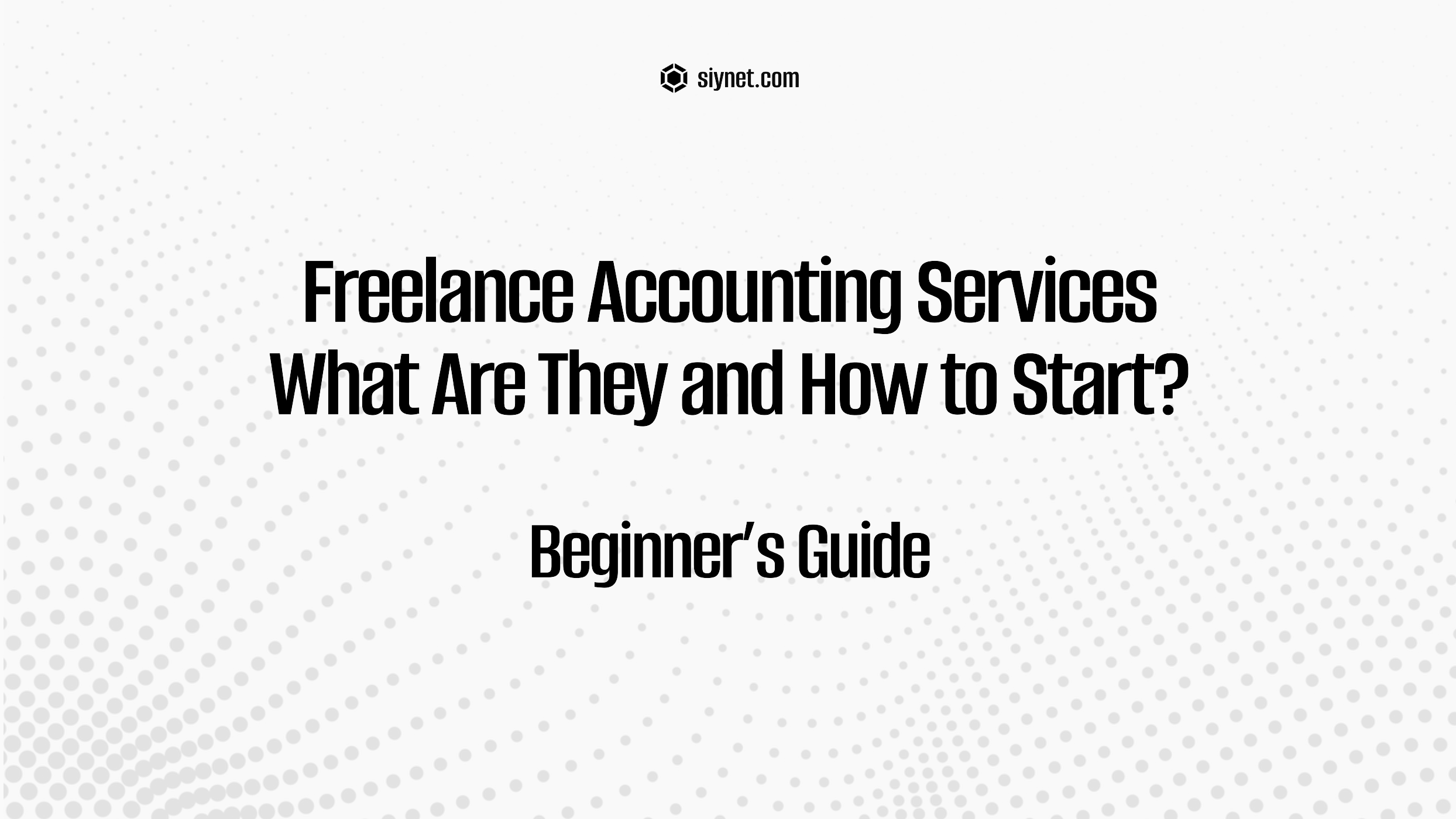
Freelance accounting services involve offering financial management, bookkeeping, tax preparation, and other accounting-related tasks to businesses or individuals on a contract or per-project basis. Freelance accountants work independently, often remotely, providing a flexible and cost-effective solution for clients needing financial expertise.
Types of Services Offered by Freelance Accountants
- Bookkeeping:
- Recording daily financial transactions, reconciling bank statements, and maintaining general ledgers.
- Tax Preparation and Filing:
- Preparing tax returns for individuals or businesses and advising on tax planning strategies.
- Financial Reporting:
- Preparing income statements, balance sheets, and cash flow statements.
- Payroll Management:
- Calculating employee wages, managing deductions, and ensuring compliance with labor laws.
- Budgeting and Forecasting:
- Helping clients plan and manage their finances effectively to meet business goals.
- Accounts Payable/Receivable Management:
- Managing invoices, collections, and vendor payments.
- Advisory Services:
- Providing insights into financial performance and recommending improvements.
Benefits of Freelance Accounting Services for Clients
- Cost-Effective:
- No need for full-time staff; pay only for services rendered.
- Flexibility:
- Access to services as needed without long-term commitments.
- Specialized Expertise:
- Freelancers often focus on specific industries, offering tailored advice.
- Scalability:
- Services can grow with the business, adapting to changing financial needs.
- Remote Availability:
- Many freelance accountants work online, making it easy to collaborate from anywhere.
How to Start Offering Freelance Accounting Services
- Get Qualified:
- Obtain relevant certifications like CPA (Certified Public Accountant), CMA (Certified Management Accountant), or equivalent qualifications in your country.
- Define Your Niche:
- Specialize in areas such as small businesses, startups, or specific industries like retail, healthcare, or IT.
- Set Up Your Business:
- Register as a sole proprietor or LLC, depending on local legal requirements.
- Build a Portfolio:
- Showcase your expertise with case studies or sample reports (with client permission or anonymized data).
- Choose Tools and Software:
- Invest in accounting tools like QuickBooks, Xero, FreshBooks, or Wave to streamline your services.
- Establish Rates:
- Research market rates and decide whether to charge hourly, per project, or on retainer.
- Market Your Services:
- Use platforms like Upwork, Fiverr, LinkedIn, and your own website to attract clients.
- Network:
- Join professional associations, attend industry events, and connect with local businesses.
Top Tools for Freelance Accountants
- QuickBooks: Comprehensive accounting software for small businesses.
- Xero: Cloud-based accounting with excellent collaboration features.
- FreshBooks: Great for invoicing and expense tracking.
- Wave: Free accounting software with essential tools.
- Zoho Books: Affordable option with integrated CRM and project management tools.
- Gusto: Payroll and HR management tool.
- Trello/Asana: For project and task management.
Challenges and How to Overcome Them
- Client Acquisition:
- Challenge: Finding clients in a competitive market.
- Solution: Use targeted marketing and referrals.
- Managing Multiple Clients:
- Challenge: Balancing deadlines and workload.
- Solution: Use project management tools to stay organized.
- Staying Updated with Tax Laws:
- Challenge: Frequent changes in tax regulations.
- Solution: Take regular professional development courses.
- Building Trust:
- Challenge: Establishing credibility as a freelancer.
- Solution: Provide transparent communication and reliable services.
Freelance Accounting Platforms
- Upwork: Large pool of accounting jobs for various skill levels.
- Freelancer: Projects ranging from bookkeeping to financial analysis.
- Toptal: High-quality gigs for experienced accountants.
- PeoplePerHour: Short-term projects with flexible hours.
- SimplyHired: Jobs for both entry-level and experienced accountants.
Conclusion
Freelance accounting is a promising career option for finance professionals looking for flexibility and autonomy. With the right qualifications, tools, and marketing strategies, you can build a successful freelance accounting business that caters to diverse client needs.


Leave a Reply